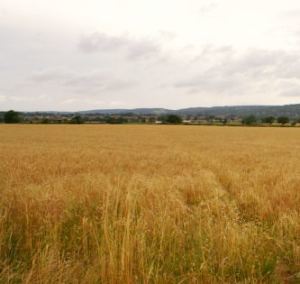International Center for Agricultural Research in the Dry
Areas (ICARDA) scientists are using modern plant breeding methods to add traits that
help wheat resist climate-induced stresses that may include drought, extreme
heat or cold and new pests and diseases.
Dryland farmers plant drought-tolerant grain crops, such as
durum wheat. While considered drought-tolerant, the wheat is often planted in
poor soils in hot, arid areas and grown with limited amounts of water.
The
farmers do not have the means to use supplemental irrigation or other expensive
technologies to increase the crop.
By using modern technology to breed wheat that is acclimated
to local conditions, ICARDA can help farmers grow larger crops without
increasing water usage. ICARDA plant breeders and agronomists integrate useful
genes into the seed DNA to produce climate-ready varieties of wheat.
ICARDA breeders use similar methods to develop pest and
disease resistant varieties. High yield varieties are combined with primitive
strains of wheat and landraces to develop special genes that protect against
pests and diseases. The resistant genes are then identified and combined to
produce wheat varieties suited for the local conditions.
ICARDA's work in bringing better varieties of wheat to
farmers has been successful in Morocco. The climate-ready variety has consistently
provided higher yields than commercial varieties.
ICARDA working to breed climate-adaptable wheat




 Alerts Sign-up
Alerts Sign-up